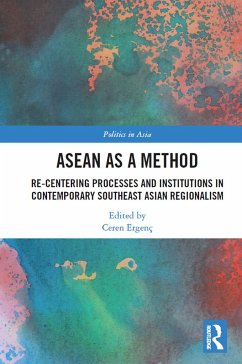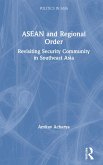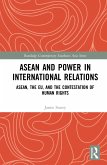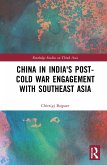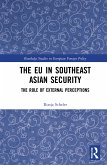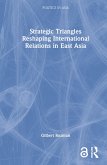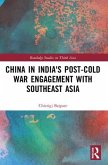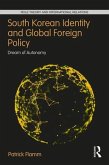This edited volume proposes that an understanding of ASEAN - its development and institutionalization - is invaluable to our conception of international relations theory in the Asian context.
Southeast Asia and ASEAN host peoples, ideas, institutions, and relations that contribute to a critical reassessment of theories in social sciences. In the field of IR, studies on transnational networks, diasporas, small states, middle powers, the role of history, and identity learn from Southeast Asian practices. ASEAN has long been established as an authoritative example of alternative ways of regional institutionalization. Besides empirical analysis, these fields can also benefit from their interactions with regional scholarly communities. This edited book offers an opportunity for a dialogue among scholarly communities on a variety of issues of which Southeast Asia and ASEAN provide ample opportunities for a critical analysis.
This book will be of great interest to scholars of ASEAN, the broader Asian region, and for scholars of regionalism in general.
Southeast Asia and ASEAN host peoples, ideas, institutions, and relations that contribute to a critical reassessment of theories in social sciences. In the field of IR, studies on transnational networks, diasporas, small states, middle powers, the role of history, and identity learn from Southeast Asian practices. ASEAN has long been established as an authoritative example of alternative ways of regional institutionalization. Besides empirical analysis, these fields can also benefit from their interactions with regional scholarly communities. This edited book offers an opportunity for a dialogue among scholarly communities on a variety of issues of which Southeast Asia and ASEAN provide ample opportunities for a critical analysis.
This book will be of great interest to scholars of ASEAN, the broader Asian region, and for scholars of regionalism in general.

